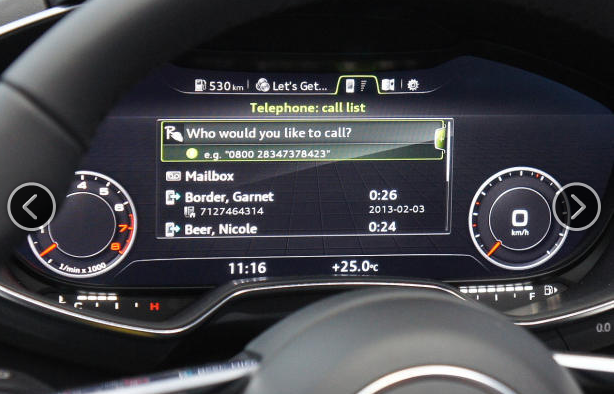Will automakers embrace of Android aid drivers or just Google?

The biggest takeaway from CES 2014 may be that most of the auto industry plans on delivering next-gen driving experiences by relying mostly on technology that runs through Google somehow.
Consider the following:
- Google launched partnerships with General Motors, Audi, Honda, Hyundai and Nvidia.
- The goal of these partnerships is to bring Android to autos in 2014.
- A group called the Open Auto Alliance aims to mix Android's ecosystem and open source cred with customization.
- Audi demonstrated an Android tablet that would go with its techie models.

You could also add one more takeaway: Most of these Android and Google partnerships are designed to play catch-up with Ford, which since 2007 has been working on the in-car driving experience and is way ahead of rivals on the tech front.
Also see: CNET's CES Car Tech coverage
Carmakers are betting that technology can change the driving experience and more importantly alter the customer relationship. Let's face it. Most cars these days are comparable on quality. Design sells and brand loyalty to a degree. If automakers can foster lock-in via technology features---picture a customer saying "well my smartphone apps work with my Ford"---then there's a different conversation. Instead of selling two consecutive cars to a family perhaps a carmaker can sell to generations of digital-native folks.
Driving is and will become even more computerized.
But there's little chance that these high-tech car dreams are going to go perfectly smooth. Consider the following wrinkles:
- GM will have three platforms in its line of cars with the addition of Android.
- Automakers will customize Android heavily---GM will meld Android and its OnStar system.
- Integration of systems will be everything and it's unclear all of these automakers will have the tech skills.
- Automakers will have different app stores.
- It's unclear how all this Android in cars is going to appeal to folks that happen to have Apple iOS powered devices.
- And finally automakers are going to have to balance ceding control of the driving experience to Google and trying to up sell their own unique features. It's going to be tricky. Very tricky.
If you add it up it's clear that CES 2014 was a key moment for in-car technology, but most of the advantages still go to Ford. Ford filled in a lot of blanks with AppLink, a developer network that'll be expanded to more cars. More importantly from a business model perspective is that Ford has something unique with its Sync franchise and has control of the ecosystem.
Not surprisingly, Ford CTO Paul Mascarenas isn't freaked out by all this Android talk. He's all for standards and has chatted with the Open Auto Alliance. Mascarenas told CNET he likes---no loves---the concept behind the group. And why not? Mascarenas gets it. The driver/consumer doesn't care about the back end integration. The win revolves around content and customer experience.
Ultimately, Ford has more control over the experience with its customers and the profit margins associated with them.
Perhaps Android takes the auto industry by storm and transforms it. But that outcome isn't going to happen without a few information technology headaches along the way. There's a very slim chance that these automakers are all going to pull off the integration behind these technology dreams flawlessly.